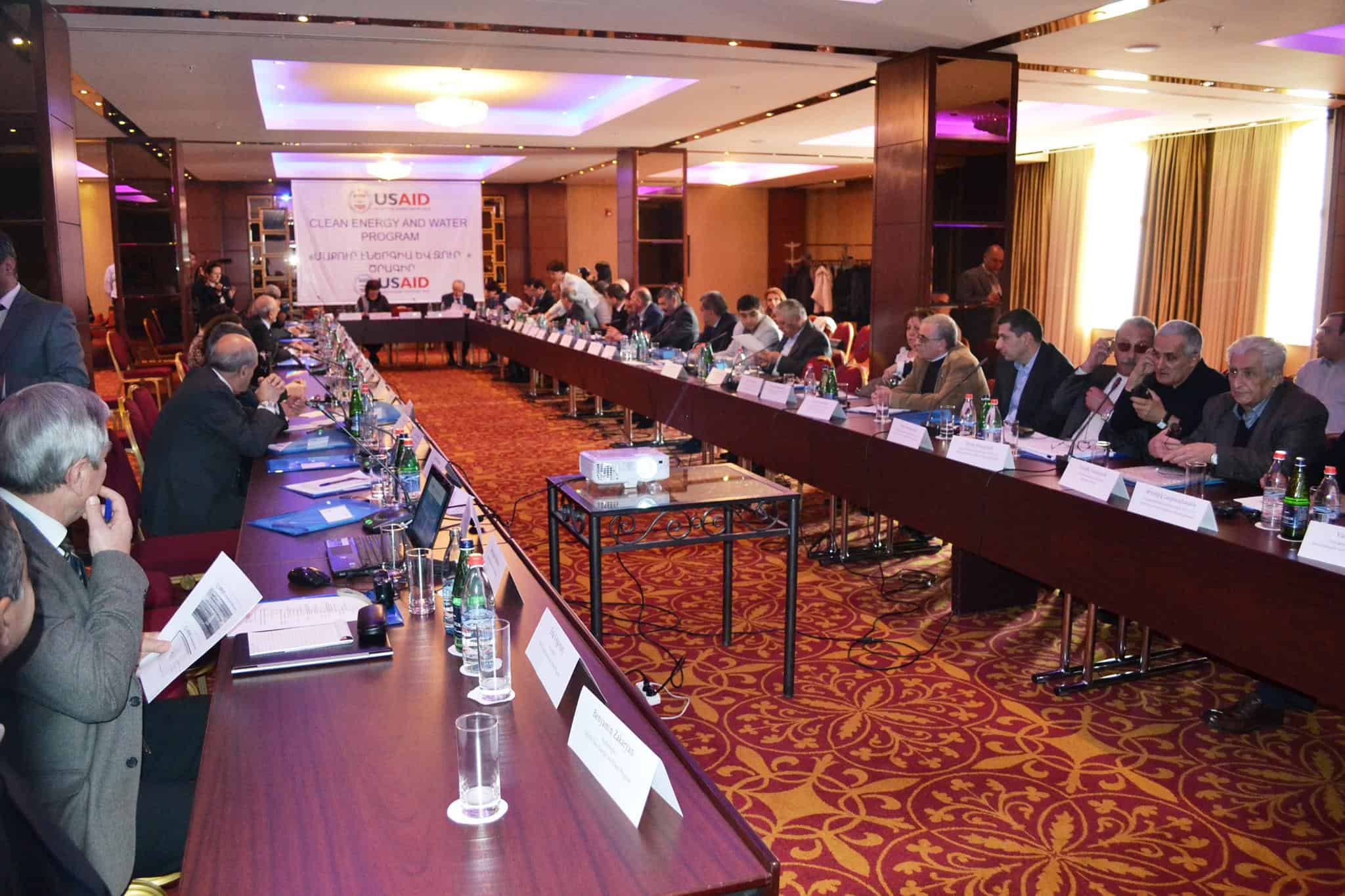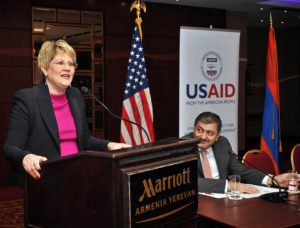
New Study Offers Sustainable Alternatives for Depleted Groundwater in Armenia
The ME&A managed Clean Energy and Water Program (CEWP) recently held a high-profile water sector meeting to present the results of the Ararat Valley Groundwater Assessment Study. Over 60 participants attended, including Armenian Deputy Prime Minister Amen Gevorgyan, USAID Mission Director Dr. Karen Hilliard, and representatives from the Armenian National Assembly and other sector-related scientific institutions. The study recommends key steps toward the sustainable use and restoration of dangerously depleted ground-water resources in Armenia’s Ararat Valley region.
In his opening remarks, Mr. Gevorgyan offered sincere thanks to USAID for the implementation of the study and for continued support to the water sector in Armenia.
 “USAID is ready to support the Armenian Government in developing the necessary solutions,” said Dr. Hilliard in a speech following the Deputy Prime Minister’s.
“USAID is ready to support the Armenian Government in developing the necessary solutions,” said Dr. Hilliard in a speech following the Deputy Prime Minister’s.
The presentation outlined some of the more troubling findings of the Study. Over the last 6-8 years, the level of groundwater resources has significantly decreased in the region, leaving over 30 communities without reliable access to potable and/or irrigation water. These shortages pose a threat to the country’s agricultural sector and to the Metsamor Nuclear Power Plant, which requires water from these sources for its cooling system.
Recommendations presented at the meeting included stricter water permitting practices, enforcement of maximum-use standards, and regulation of the unsustainable growth of the Ararat Valley’s fish farming industry, all of which will help to mitigate and eventually reverse the damaging effects of unregulated use in the valley. Representatives from the Armenian National Assembly and from scientific institutions expressed the need for swift legislative action in light of the study’s results.
The Ararat Groundwater Study was conducted under the supervision of CEWP by national experts from ArmWaterProject and Mel-Hov Companies and reviewed by an international expert on hydrogeology.
The Clean Energy and Water Program (CEWP) is funded through USAID’s Water II IQC. To learn more please visit www.cew.am and follow CEWP on Facebook.


